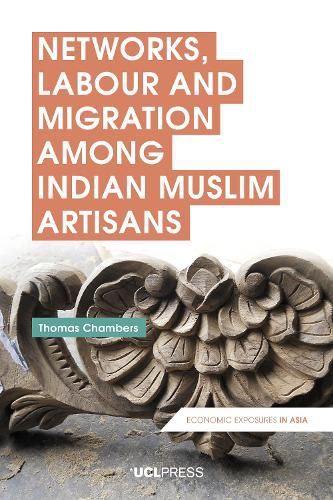Readings Newsletter
Become a Readings Member to make your shopping experience even easier.
Sign in or sign up for free!
You’re not far away from qualifying for FREE standard shipping within Australia
You’ve qualified for FREE standard shipping within Australia
The cart is loading…






Networks, Labour and Migration Among Indian Muslim Artisans provides an ethnography of life, work, and migration in a North Indian Muslim-dominated woodworking industry. It traces artisanal connections within the local context, during migration within India, and to the Gulf, examining how woodworkers utilize local and transnational networks, based on identity, religiosity, and affective circulations, to access resources, support, and forms of mutuality. However, the book also illustrates how liberalization, intensifying forms of marginalization and incorporation into global production networks have led to spatial pressures, fragmentation of artisanal labor, and forms of enslavement that persist despite geographical mobility and connectedness. By working across the dialectic of marginality and connectedness, Thomas Chambers thinks through these complexities and dualities by providing an ethnographic account that shares everyday life with artisans and others in the industry.
$9.00 standard shipping within Australia
FREE standard shipping within Australia for orders over $100.00
Express & International shipping calculated at checkout
Networks, Labour and Migration Among Indian Muslim Artisans provides an ethnography of life, work, and migration in a North Indian Muslim-dominated woodworking industry. It traces artisanal connections within the local context, during migration within India, and to the Gulf, examining how woodworkers utilize local and transnational networks, based on identity, religiosity, and affective circulations, to access resources, support, and forms of mutuality. However, the book also illustrates how liberalization, intensifying forms of marginalization and incorporation into global production networks have led to spatial pressures, fragmentation of artisanal labor, and forms of enslavement that persist despite geographical mobility and connectedness. By working across the dialectic of marginality and connectedness, Thomas Chambers thinks through these complexities and dualities by providing an ethnographic account that shares everyday life with artisans and others in the industry.